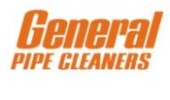
The 4 Rs of selling in a competitive market
October 26, 2016 | By Mark Evans
What is the right path to success in business? There are many answers to this question and for every answer opinions abound as to which one is right. Everyone would agree that finding success is one thing, keeping it is another – especially when you sell a mature product in a mature market.
From Greek philosophers to hardened literary characters, the common thread of wisdom is knowledge. For example, the saying “know thyself” is a central precept of ancient Greek philosophy and can be seen as good advice for any modern businessperson. To be successful it is necessary to know the strengths and weaknesses of your products and to understand your company and its capabilities. Menander, who was a Greek dramatist, offered a different perspective on that philosophy. He noted that the saying “know thyself” is not well put. It would be more beneficial to say “know others.” This is a good lesson for business.
Know your competition as well as you know yourself. See both the practical benefits and perceived value that resides in their products or services. Rather than simply try to defend against them, find ways to align yourself – take the battle from their field onto your field. Highlighting a mature product’s similar features and benefits in a mature market may result in your product being seen as a “Like Product.”
Differentiating your company and your services changes the perceived value of the customer experience. Raising the value inside the customer experience earns and maintains loyalty. This is also where you earn your market price premium and sustain it. In addition, the more you know about customers through the eyes of competitors, the more likely you are to be capable of maintaining those relationships, and identifying and satisfying the customer’s evolving needs profitably.
Understanding some of the dynamics of selling a mature product in a mature market requires a look at the phases in a product’s lifecycle. The three distinct phases prior to obsolescence are pioneering, optimization and maintenance:
Pioneering In the pioneering phase, the features and benefits are unique and sales are driven by such things as product application knowledge and system design knowledge, coupled with installation knowledge and training. Loyalties with customers are built as product acceptance and utilization grows. Meaningful competitive comparisons are difficult to determine.
Optimization In the optimization phase, the product has found acceptance. At this point meaningful competitive comparisons start to come to the forefront as the effect of benchmarking becomes evident. The market leader position established in the pioneering phase aids in retention of existing market share as the customer experience along with the product attributes become the standard of comparison by which new competitors are judged.
Maintenance In the maintenance phase, the market for the product has fully matured. Continued growth comes from cannibalizing shares of a static market. As the product becomes perceived as a commodity pricing pressures intensify. Competition is at its apex now creating a new challenge: the unique features and benefits of the product no longer have the same perceived value and are more homogenous in the eyes of the market.
Finding yourself deep in a competitive situation, where the price/value relationship begins to weaken your market leader position, the easiest path is to follow the market down by failing to recognize that in the maintenance phase the differentiation must come more from within the vendor/customer transaction. Be it packaging, supply-chain capability, warranty or service, there are many ways to maintain a price premium and a market leader position in the face of intense competition.
At this juncture the sage advice of “Wise Guy” philosopher Michael Corleone might be relevant. In The Godfather Part II he says to Frank Pentangeli “keep your friends close but your enemies closer.” The fact that a technical approach to sales resonates in this industry sometimes has us focus too much on the technical merits of products, which narrows our field of view. It is with that thought in mind that you must learn more about your competitors, not just about their products but their business, particularly through the eyes of the customer.
Use easily accessible sources of business information to research competitors. Many may be public companies with financial results reported to shareholders that include not only sales and profit reports, but insight into marketing focuses and messaging, new product developments and industry sector focuses and results.
Keep in mind your own predilection – take the customer perspective and do not focus on the obvious competitive performance analysis of features versus features, and benefits versus benefits. Consider what the customers’ estimation of your competitors’ perceived value is, and their value proposition versus your value proposition. With that in mind, look at hiring a third party to conduct a market survey on your behalf. Whether it is a blind survey or a sponsored survey, you will see what customers think of you in relation to your competitors. It will help you discover opportunities to differentiate or further differentiate your company and its service capability through real change or through messaging to better position and communicate an improved value proposition.
We live in an age where information flows across so many planes that it is difficult to control perception. Ours is an industry where “my products speak for themselves” was the mantra. Our products no longer speak for themselves. We must speak for them but in new ways with a new message.
You have heard of the 3 Rs- Reading, wRiting and aRithmatic. Consider the 4 Rs when it comes to selling a mature product in a mature market in today’s world. Be the Right person in the Right place at the Right time with the Right message.

Mark Evans has held positions of increasing responsibility at the regional and national level of the wholesale supply, rep agency and manufacturing sectors of the plumbing and heating industry.




